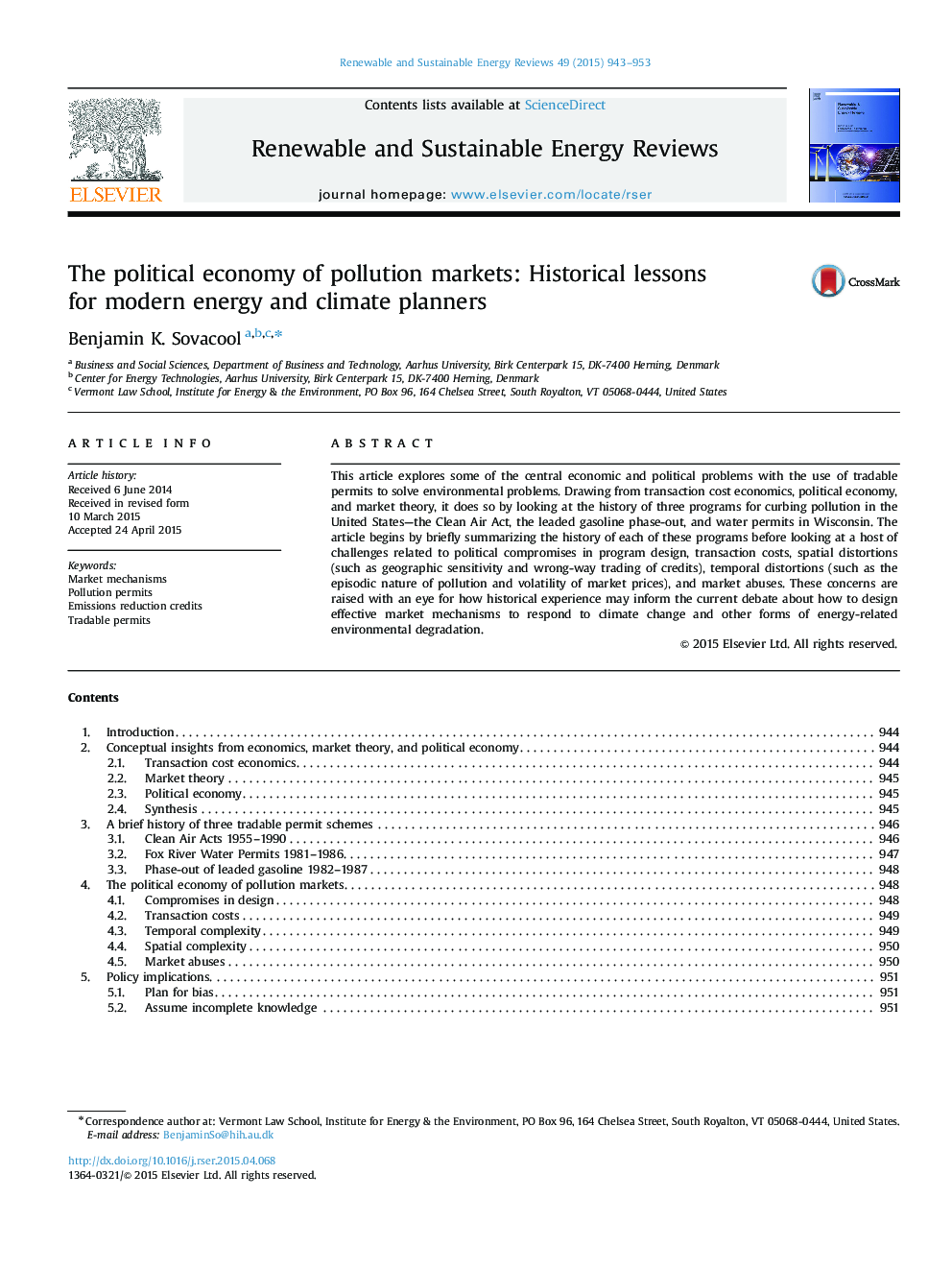| Article ID | Journal | Published Year | Pages | File Type |
|---|---|---|---|---|
| 8116937 | Renewable and Sustainable Energy Reviews | 2015 | 11 Pages |
Abstract
This article explores some of the central economic and political problems with the use of tradable permits to solve environmental problems. Drawing from transaction cost economics, political economy, and market theory, it does so by looking at the history of three programs for curbing pollution in the United States-the Clean Air Act, the leaded gasoline phase-out, and water permits in Wisconsin. The article begins by briefly summarizing the history of each of these programs before looking at a host of challenges related to political compromises in program design, transaction costs, spatial distortions (such as geographic sensitivity and wrong-way trading of credits), temporal distortions (such as the episodic nature of pollution and volatility of market prices), and market abuses. These concerns are raised with an eye for how historical experience may inform the current debate about how to design effective market mechanisms to respond to climate change and other forms of energy-related environmental degradation.
Related Topics
Physical Sciences and Engineering
Energy
Renewable Energy, Sustainability and the Environment
Authors
Benjamin K. Sovacool,
